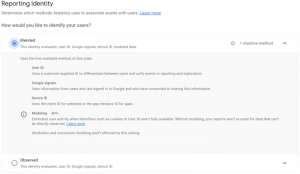Being a retailer involves a lot of decision making, from choices of products, to how much to keep on hand in your inventory, to whether you want a bricks-and-mortar store, an ecommerce presence, or a combination of the two.
 Outside of powerful product descriptions and inventory management databases, one of the biggest questions we hear from retailers concerns how the online shopping cart is going to work. What payment gateway makes the most sense for their business?
Outside of powerful product descriptions and inventory management databases, one of the biggest questions we hear from retailers concerns how the online shopping cart is going to work. What payment gateway makes the most sense for their business?
Taking it one step back, a payment gateway is a service that allows a retailer to accept credit cards or other payment methods—both in physical and online stores. They allow for secure transactions involving money and banks. There are many big players in this ecommerce space. Here are five of the biggest:
5 Payment Gateway Options for Ecommerce Stores (in their own words)
- Amazon Payments – “Millions of Amazon customers can login and pay on your website with their stored account information on Amazon.com. Login and Pay with Amazon can help you add new customers, increase sales and turn casual browsers into buyers. It’s fast, easy and trusted — leverage the Amazon brand to grow your business.”
- Authorize.net – “Sell online, mobile or at a store. Accept credit cards, e-checks and alternative payments. Our additional services do the work of a full-time staff and help you fight fraud, store data securely and more. We’ve been a trusted payment gateway partner since 1996. You can count on our expertise no matter what your business needs.”
- PayPal – “What makes our gateway different is the low rates and incremental sales boost from offering PayPal and PayPal Credit payment options on your site… [PayPal can be] integrated with major shopping carts and works with almost every processor. Plus, if you sell overseas, you can accept PayPal payments in 25 currencies in 202 countries around the globe.”
- Square – “Square allows you to sell online on our site, with third party e-commerce sites and on your own site. With all three, you get next day deposits, can accept all major credit cards at one simple rate, and can integrate reporting and inventory with your offline sales… The free Square Magstripe Reader works with the free Square app to allow merchants of all sizes to process payments on a smartphone or tablet. There are no commitments or monthly fees, and you pay only when you make a sale.”
- Stripe – “We help power 100,000+ businesses in 100+ countries and across nearly every industry… Accept all major cards from customers around the world on web or in mobile apps. Design the experience yourself or drop in Checkout, our pre-built, conversion-optimized form. Save card details so customers can pay again with a single click… With one, unified platform, you’ll be ready to immediately support new tools like Apple Pay, sell products directly from tweets, accept 135+ currencies, and more.”
How is your ecommerce business going to decide which is right for you?
It’s a matter of depth and compatibility. Does your choice allow for the payment methods you know your customers will use (e.g., credit cards, PayPal, international currencies, bitcoin, etc.)? What is compatible with your chosen ecommerce platform? How many features do you need? What fee structure makes the most sense for your business?
Length of the contract and specific terms of the agreement are clearly major factors in the decision as well. Some web development companies prefer one payment gateway over another or they can act as advisers in this decision, but it really comes down to what fits your needs. You certainly have options.
Forrester Research showed that 244 million consumers browsed or bought online in 2015, and that is supposed to increase by 26 million shoppers by 2020.
Among all of the decisions that you make as a retailer, this is a big one. It deserves some time and major consideration. There might not be one universal right answer, but there is probably a right answer for you.
Digital & Social Articles on Business 2 Community(26)
Report Post







